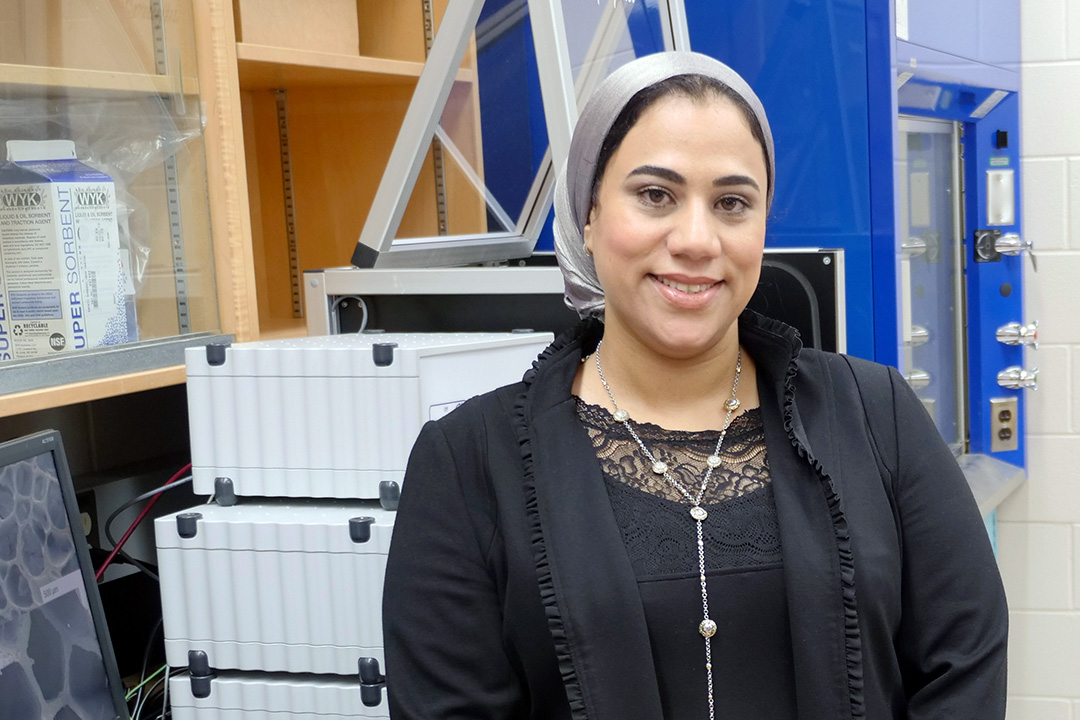
Abdelrasoul honoured with two research awards
A University of Saskatchewan (USask) College of Engineering professor's work has led to groundbreaking advances in hemodialysis membrane science and technology.
By USask Engineering CommunicationsDr. Amira Abdelrasoul, an associate professor in the University of Saskatchewan College of Engineering, is the recipient of the 2021 Young Investigator Excellence Award from the Canadian Light Source (CLS).
It is awarded to an early-career researcher who is an active CLS user that has published results based on data obtained from the CLS.
Abdelrasoul was also recognized this fall as one of 18 outstanding chemical engineering women researchers across the globe by the Journal of Chemical Engineering Research and Design.
“I am so honored and proud to be the recipient of these awards. I really appreciate the recognition and I am sincerely grateful to the professors who nominated me and to everyone supporting my research program!” said Abdelrasoul, who is an associate professor in the Division of Biomedical Engineering in the Department of Chemical and Biological Engineering.
Abdelrasoul has pioneered the use of customized gold nanoparticles to label and track the movement of specific blood proteins through hemodialysis membranes, which has proven to be a significant advance towards achieving more biocompatible dialysis membranes.
The work she has done has led to groundbreaking advances in hemodialysis membrane science and technology. With the new information she has gathered through her work at CLS, she is now able to create new designs and membrane materials to be tested in dialysis applications. She acknowledges that “it is particularly special to be recognized by a unique research facility like the CLS.”
The ultimate aim of Abdelrasoul’s research is the design and commercialization of an artificial wearable kidney based on novel membranes designed to reduce inflammation, blood protein deposition, and other effects of hemodialysis that lead to very high rates of morbidity and mortality among dialysis patients. Such a revolutionary advancement would be life-changing for the millions of Canadians and people around the world who suffer from advanced kidney disease.
“To be recognized for my work by a high reputational journal in our field and among other women researchers around the world is so great. I am motivated to move the research forward to new milestones in hemodialysis research until I achieve my ultimate goal and affect a real change for kidney failure patients,” said Abdelrasoul.
Article re-posted on .
View original article.

